|

HOME |
ABOUT | INDEX |
NEWS |
FACEBOOK |
CONTACT
ADOPTION
Fostering | Surrogate
LGBTQ
Adoption Statistics
Of the 594,000 same-sex couple households
in the United States, 115,000 have children. Some people
say that children need both a mother and a father to
raise them, but there are many others who believe that
gender does not matter when parenting. Over the years,
the number of children living with LGBTQ parents has
risen tremendously. As the trend continues, that number
will only increase, as same sex adoption and parenting
becomes more and more widely accepted.
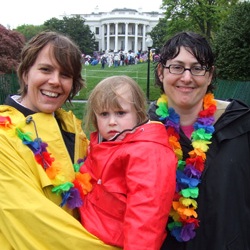
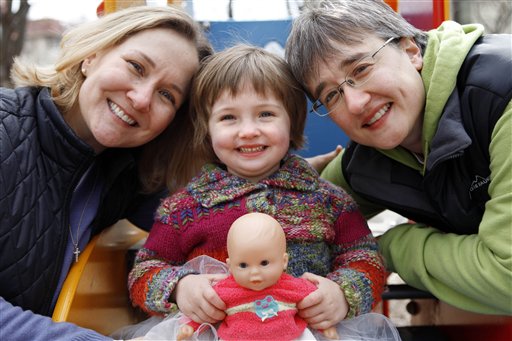
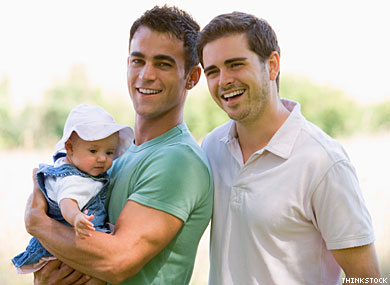
Congressional Hearing: LGBTQ Couples Adopting Children
Retired Gay Couple Has Fostered 33 Kids
LGBTQ People Want to Foster or Adopt Kids, but Fear of
Discrimination Stops Them
Michael and Tyrone: Foster Care Adoption Story
How to Make Adoption a Reality
What
They Aren't Telling You About Gay Adoption
Two Gay Dads Adopt Six Kids
Questions Gay Men Should Ask When
Considering Foster Care
The
Berretts: Questions for an LGBTQ Family
Info: LGBTQ Parents
of Straight Children
List of LGBTQ Parent Adoption and Foster Care Resources
Family
Equality
Researchers estimate the total number of
children nationwide currently living with at least one
gay parent ranges from 6 to 14 million. An estimated two
million LGBTQ people are interested in adopting.
Gay and lesbian parents are raising four
percent of all adopted children in the United States.
More than 16,000 same-sex couples are raising an
estimated 22,000 adopted children in the United States.
More than 16,000 adopted children are living with
lesbian and gay parents in California, the highest
number in the United States.
Same-sex parents in the United States are
four times more likely than different-sex parents to be
raising an adopted child. Among couples with children
under the age of 18 in the home, 13% of same-sex parents
have an adopted child, compared to just 3% of
different-sex parents. The median age of same-sex
adoptive parents is 42, as opposed to 44 for comparable
opposite-sex parents.
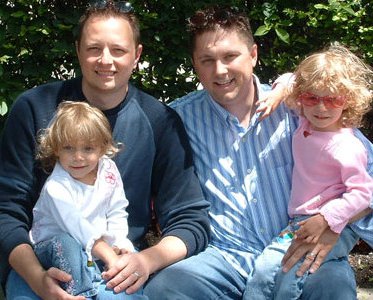
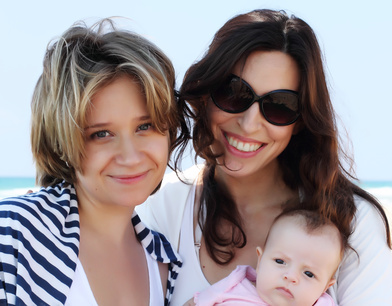
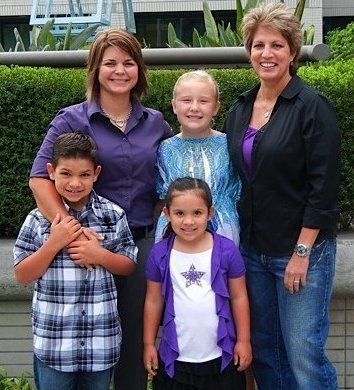
Same-sex couples in all states can
petition for joint adoption statewide. Couples may be
required to be in a legally recognized relationship,
such as a marriage, civil union, or domestic
partnership. States that explicitly allow same-sex
couples to petition for a second parent adoption include
California, Colorado, Connecticut, Washington DC, Idaho,
Illinois, Indiana, Maine, Massachusetts, Montana, New
Jersey, New York, Oklahoma, Pennsylvania, and Vermont.
My Gay Mums Are My Best Friends
Retired Gay Couple Has Fostered 33 Kids
LGBTQ People Want to Foster or Adopt Kids, but Fear of
Discrimination Stops Them
Advocate: What I've Learned From Being a Gay Dad
Video: Gay Dads Adopt 6 Siblings
Foster Care Adoption Story: Crystal and Kelly
Lesbian Couple is Helping Their Son Build a Lifelong
Relationship with Their Sperm Donor
Lesbian Moms Adopt Three Brothers
LGBTQ Adoption and Foster Care Resources
20 Families Rejected a Baby with Down
Syndrome Until a Single Gay Man Adopted Her
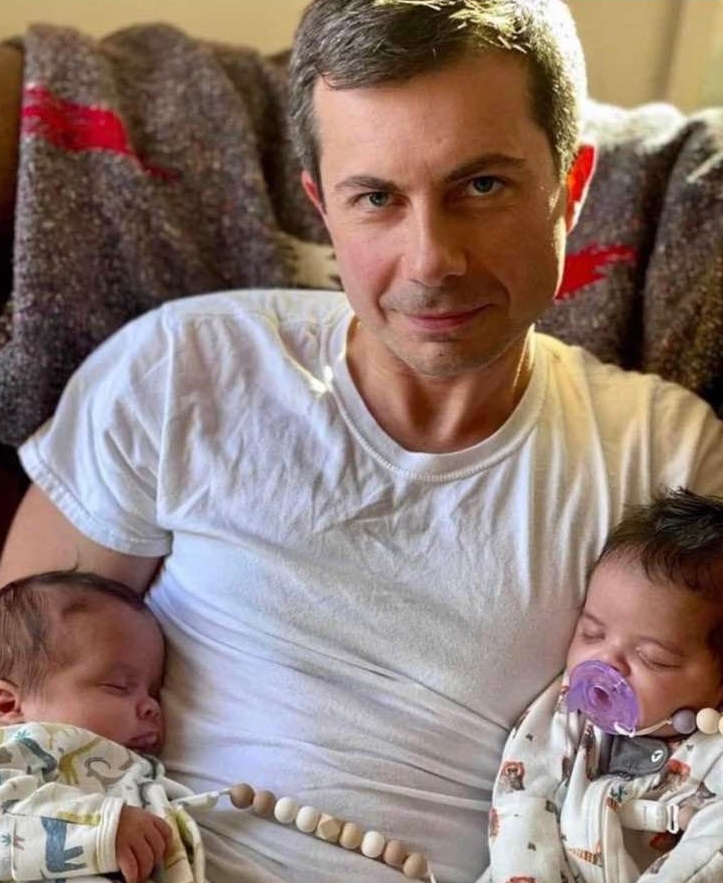
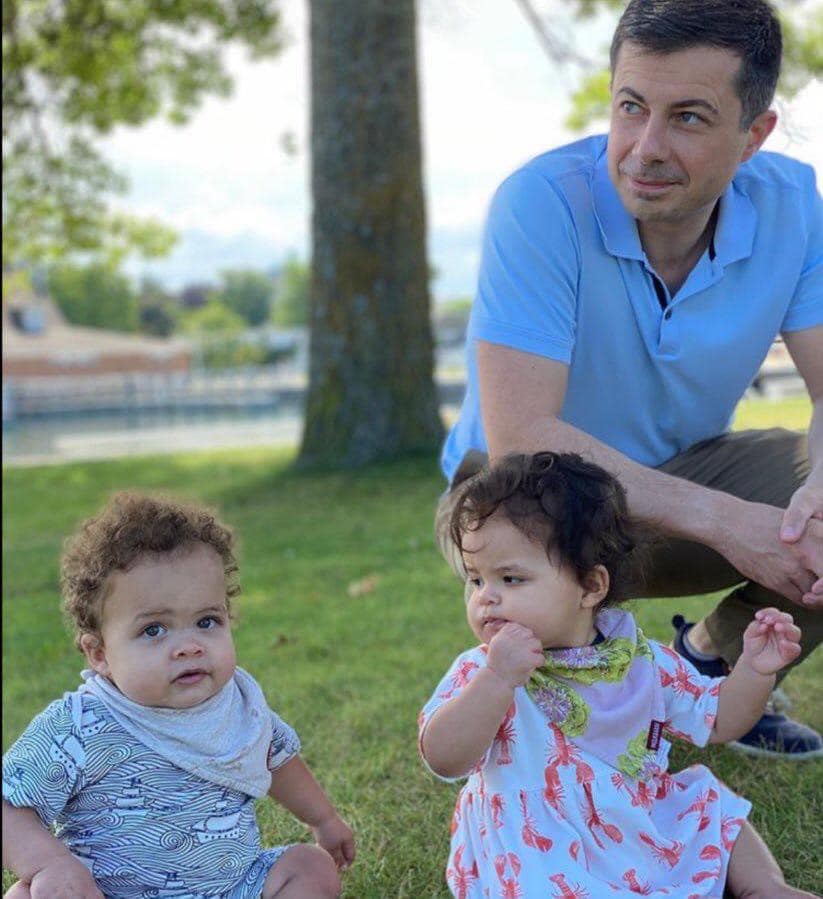
Congressional Hearing: LGBTQ Couples Adopting Children
Lifelong Adoptions: LGBTQ Adoptions
List of LGBTQ Parent Adoption and Foster Care Resources
Texas Dads Adopt Five of Seven Siblings
Info: LGBTQ Parents
of Straight Children
Find
Law: Legal Issues for Gay and Lesbian Adoption
Video: Gay Dads Adopt 6 Siblings
Michael and Tyrone: Foster Care Adoption Story
How to Make Adoption a Reality
Steve
& Trevor Plus Four Sons
LGBTQ Adoption Facts
For many, LGBTQ adoption is still a new
concept, and the image of a “perfect” family includes a
mother and a father of opposite sexes. We know this is a
just a stereotype. Today, more and more gay and lesbian
couples are becoming parents, whether through artificial
insemination, a surrogate or LGBTQ adoption.
Almost 40% of all agencies and 83% of
public agencies reported making at least one adoption
placement with a lesbian or gay man. However, one-third
of agencies would reject a gay or lesbian applicant,
either because of the religious beliefs guiding the
agency, a state law prohibiting placement with LGBTQ
parents, or a policy of placing children only with
married couples. Additionally, agency heads are more
likely to have negative views towards gays and lesbians
adopting when they associate such adoptions with greater
evaluation and support needs.
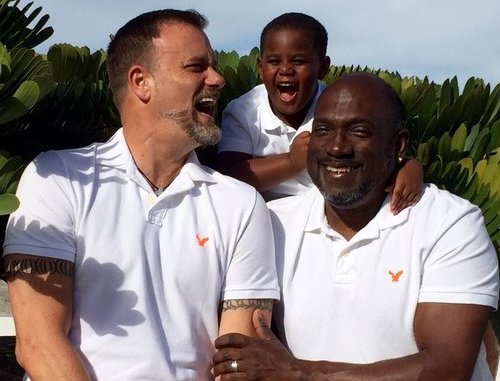
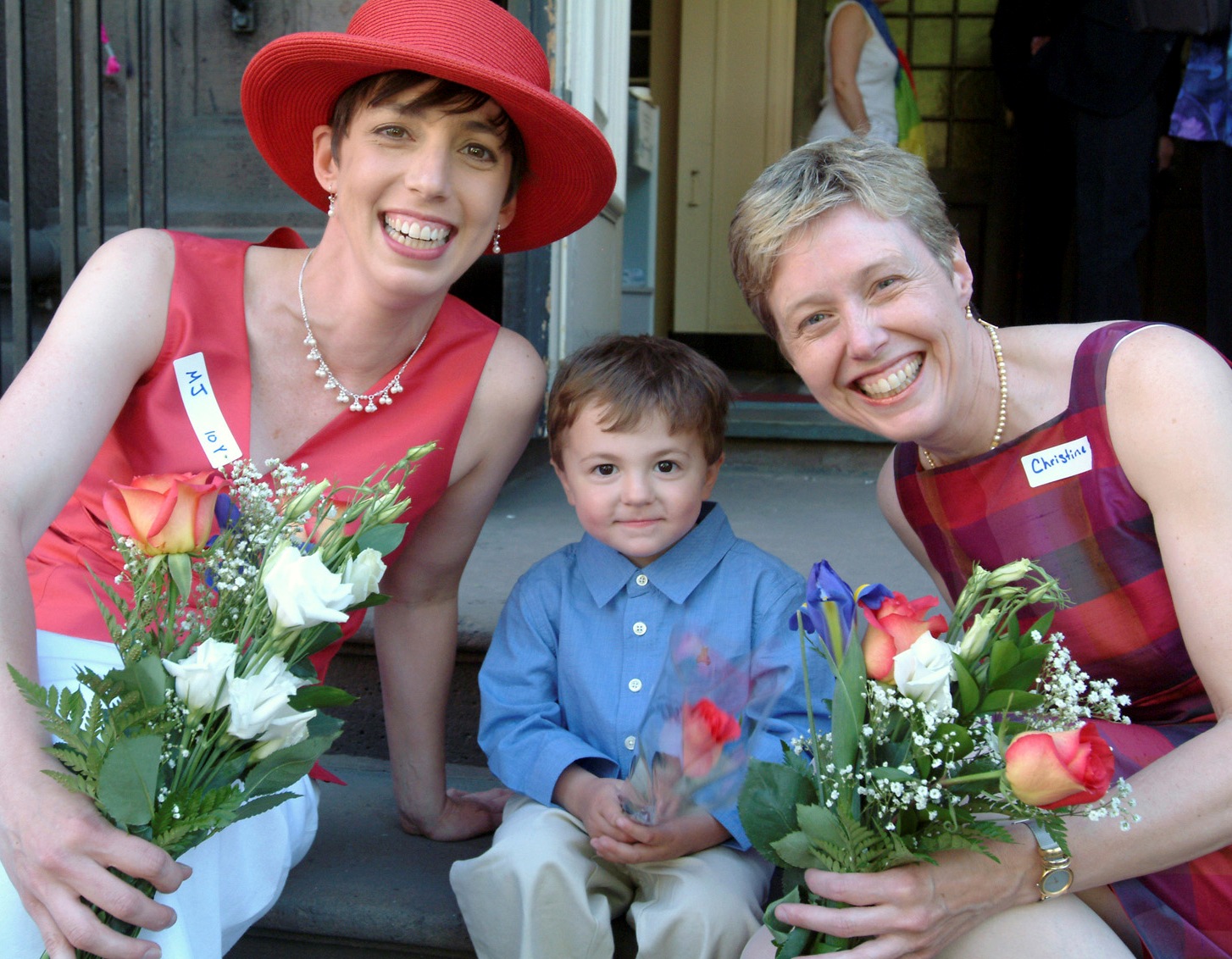
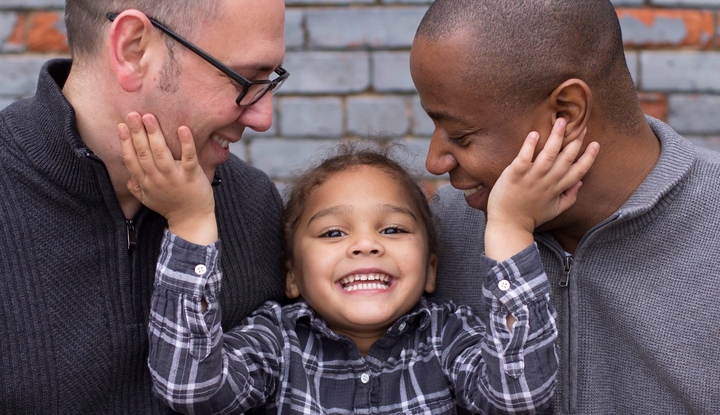
Hero Dads Adopt Six Siblings
Adoption Finalized for Alabama Couple
Two Gay Dads Adopt Six Kids
Heidi
& Karla Plus Twelve
LGBTQ People Want to Foster or Adopt Kids, but Fear of
Discrimination Stops Them
Questions Gay Men Should Ask When
Considering Foster Care
The
Berretts: Questions for an LGBTQ Family
Info: LGBTQ Parents
of Straight Children
Family
Equality
List of LGBTQ Parent Adoption and Foster Care Resources
Here are some additional facts supporting
gay adoption:
There is no reliable evidence that
homosexual orientation impairs psychological
functioning. And, beliefs that lesbian and gay adults
are not fit parents have no empirical foundation.
Good parenting is not influenced by
sexual orientation. It is influenced most by a parent’s
ability to create a loving and nurturing home. This
ability has nothing to do with whether the parent is gay
or straight.
There is no evidence to support claims
that children of lesbian and gay parents are less
intelligent, suffer from more problems, are less
popular, or have lower self-esteem than children of
heterosexual parents.
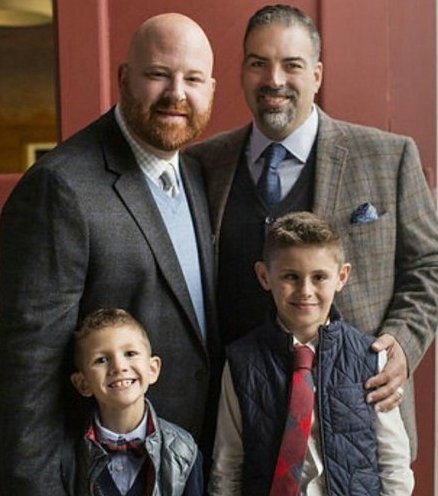
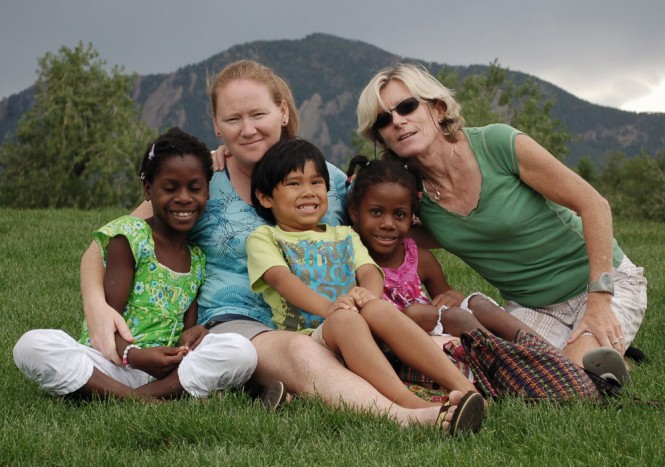
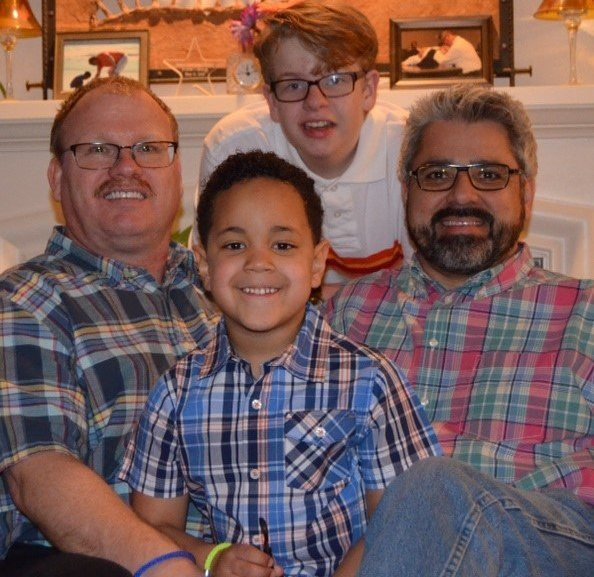
Research suggests that sexual identities
(including gender identity, gender-role behavior, and
sexual orientation) develop in much the same ways among
children of gay and lesbian parents as they do among
children of heterosexual parents.
There is no conclusive evidence that
homosexuality is linked to one's environment. In other
words, growing up in a same-sex couple household will
not "make" a child gay.
Here's How Two Women Changed The Lives Of
LGBTQ Families In Alabama Forever
Dads Celebrate Daughter’s First Birthday After Difficult
Path To Parenthood
Gays With Kids: Gay Surrogacy
LGBTQ Nation: Foster Kid Dreams of Being Adopted by Two
Days
Germany Making it Easier for Lesbian Couples to
Co-Parent
NOLO:
Gay and Lesbian Adoption and Parenting
Steve and Rob: Two Dads Adopt Six Siblings
LGBTQ
Adoption: Redefining Family
Lesbian Couple is Helping Their Son Build a Lifelong
Relationship with Their Sperm Donor
How Gay Dads Respond to "The Mommy"
Question
Info: Home and Family
Stories of Gay Dads and
Their Foster Families
Lesbian Couple That Brought Down Alabama’s Gay Marriage
Ban Sues State Over Second-Parent Adoption
Questions to Ask
Before Starting the Adoption Process
If you are considering adopting a child, you are in very
good company! There are an estimated 2 million LGBTQ
adults in the US who want to parent children, many via
the adoption process. There are numerous ingredients that go into
successful adoptions. Here are 8 questions you should
ask yourself before you begin the process. If you are
comfortable with your answers to these questions,
congratulations! You are probably ready to begin the
adoption process.
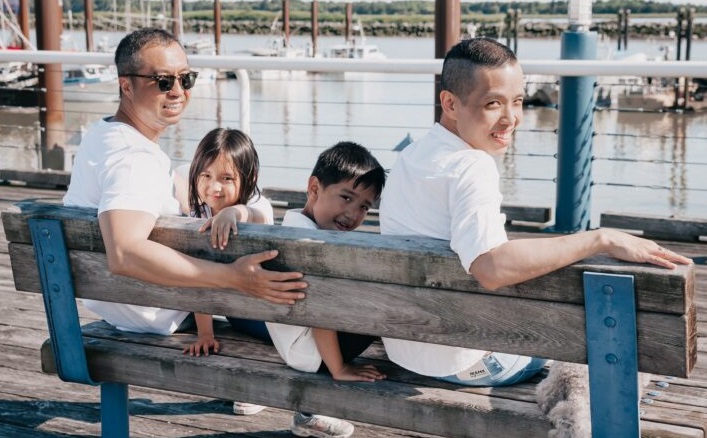
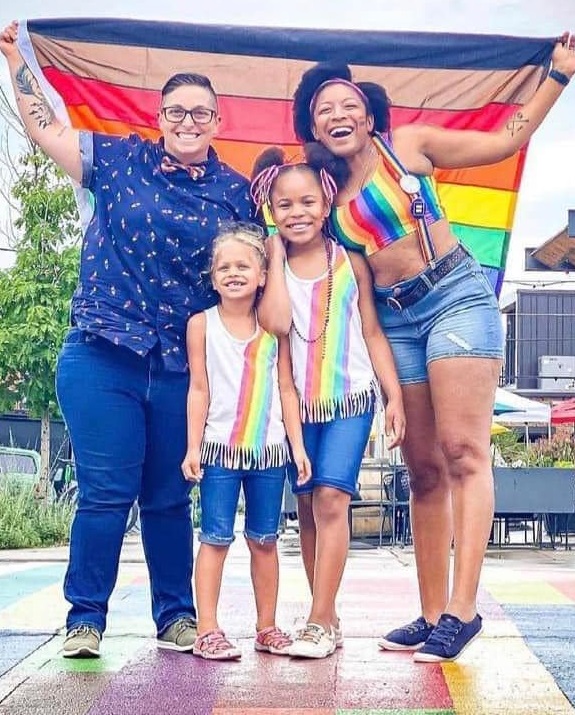
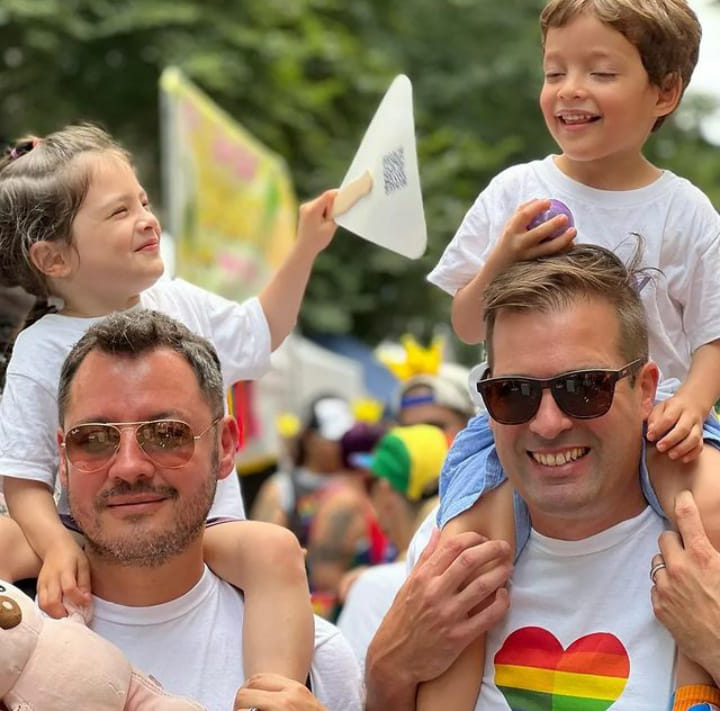
Rainbow Babies
Congressional Hearing: LGBTQ Couples Adopting Children
LGBTQ People Want to Foster or Adopt Kids, but Fear of
Discrimination Stops Them
My Gay Mums Are My Best Friends
Two Gay Dads Adopt Six Kids
Retired Gay Couple Has Fostered 33 Kids
Here's How Two Women Changed The Lives Of
LGBTQ Families In Alabama Forever
Lesbian Moms Adopt Three Brothers
Texas Dads Adopt Five of Seven Siblings
Questions Gay Men Should Ask When
Considering Foster Care
Lesbian Couple is Helping Their Son Build a Lifelong
Relationship with Their Sperm Donor
Public or Private Agency?
Public
child welfare agencies are government entities that
provide a safety net for families. Each county and
jurisdiction has its own department of social services
responsible for caring for children and youth in foster
care and those unable to be reunited with their first
families are often available for adoption. Many state,
county and city public child welfare offices recognize
that LGBTQ applicants are excellent prospects to parent
youth in their care. The disadvantages of public
agencies are the bureaucracies involved and the lengthy
period it can take to complete the process. The
advantages are the very low (or no) cost to adopt and
the occasional, short-term financial stipends to help
you support your new child.
Private agencies are licensed and regulated by the state
they reside in and are often non-profits. Many LGBTQ
adults choose to adopt through private adoption
agencies, especially those agencies with demonstrated
sensitivity to LGBTQ applicants. While these adoptions
can be costly, applicants are often treated very well
and can exercise some control over the type of infant or
youth they adopt.
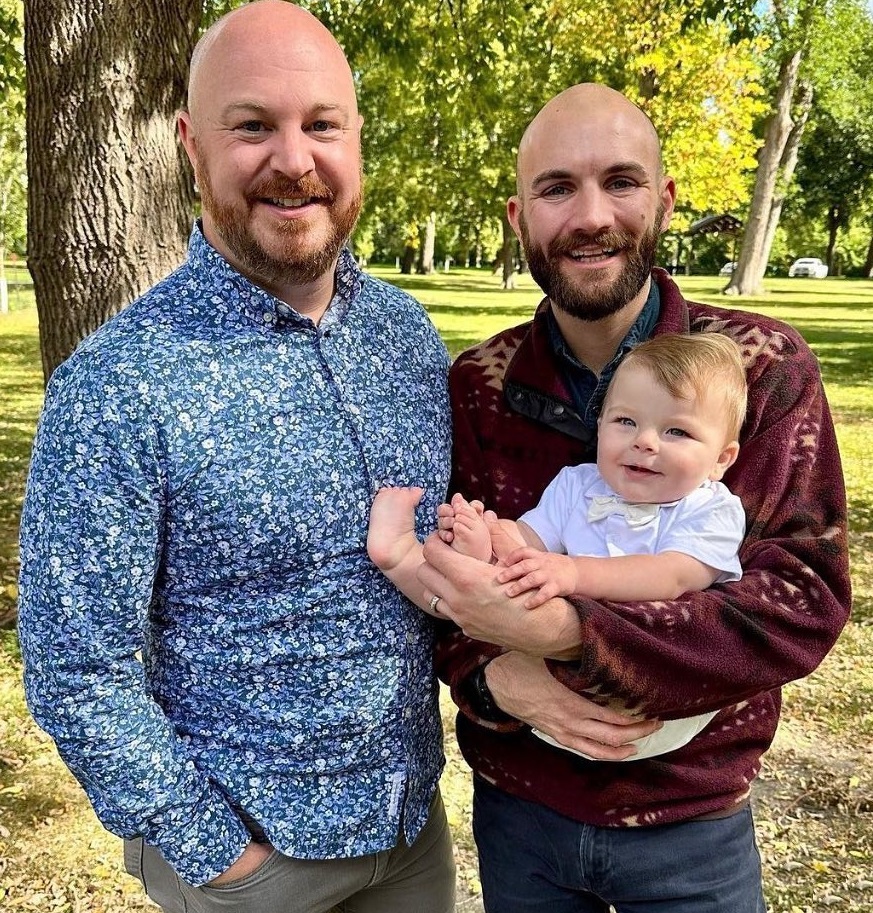
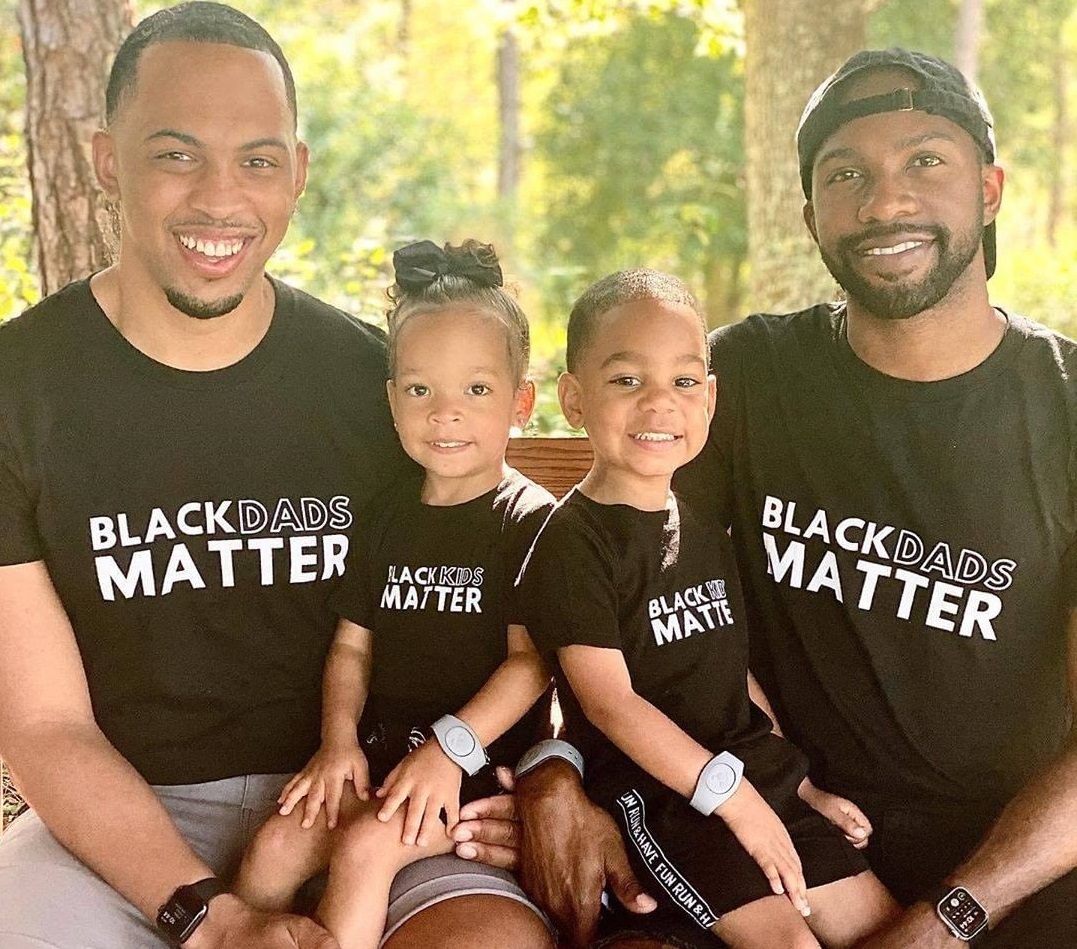

Congressional Hearing: LGBTQ Couples Adopting Children
How to Make Adoption a Reality
Steve and Rob: Two Dads Adopt Six Siblings
20 Families Rejected a Baby with Down
Syndrome Until a Single Gay Man Adopted Her
Gay
Foster Parents
Lesbian Couple That Brought Down Alabama’s Gay Marriage
Ban Sues State Over Second-Parent Adoption
Stories of Gay Dads and
Their Foster Families
Ricardo & Jesse Plus Four Sons
Dads Celebrate Daughter’s First Birthday After Difficult
Path To Parenthood
Gays With Kids: Gay Surrogacy
List of LGBTQ Parent Adoption and Foster Care Resources
LGBTQ People Want to Foster or Adopt Kids, but Fear of
Discrimination Stops Them
What child
is right for me/us?
Think carefully about the type of child you feel most
able to parent. Please remember that adopting a child is
primarily for the child’s benefit, not yours. If she has
physical, emotional, or mental challenges, will she
eventually thrive with you as her parent? If he has a
high need for attention, are you prepared to let him
have the spotlight? Would you consider adopting a child
who comes with a sister or brother? Are you adamant that
you must adopt a girl, not a boy or vice versa? Are you
prepared to parent a straight teenager? Or are you
pretty open to the kinds of children needing a safe,
loving and permanent home? The more flexible you are,
the greater the chances of success for both you and your
child!
Do you
have the necessary investments child-rearing requires?
These investments are far more than buying clothes,
giving a weekly allowance, or saving for college,
although those are important. Can you provide
unconditional love to a child? Are you willing to get
interested in activities for which your child shows
aptitude? Can you be your child’s educational advocate
with the school system? Can you lovingly establish, and
enforce, reasonable limits? Are you ready to be
completely out to your child? If you are partnered, will
both of you share these commitments to your new child?
If you answered yes to these, you are probably ready to
make the necessary investments in the child.

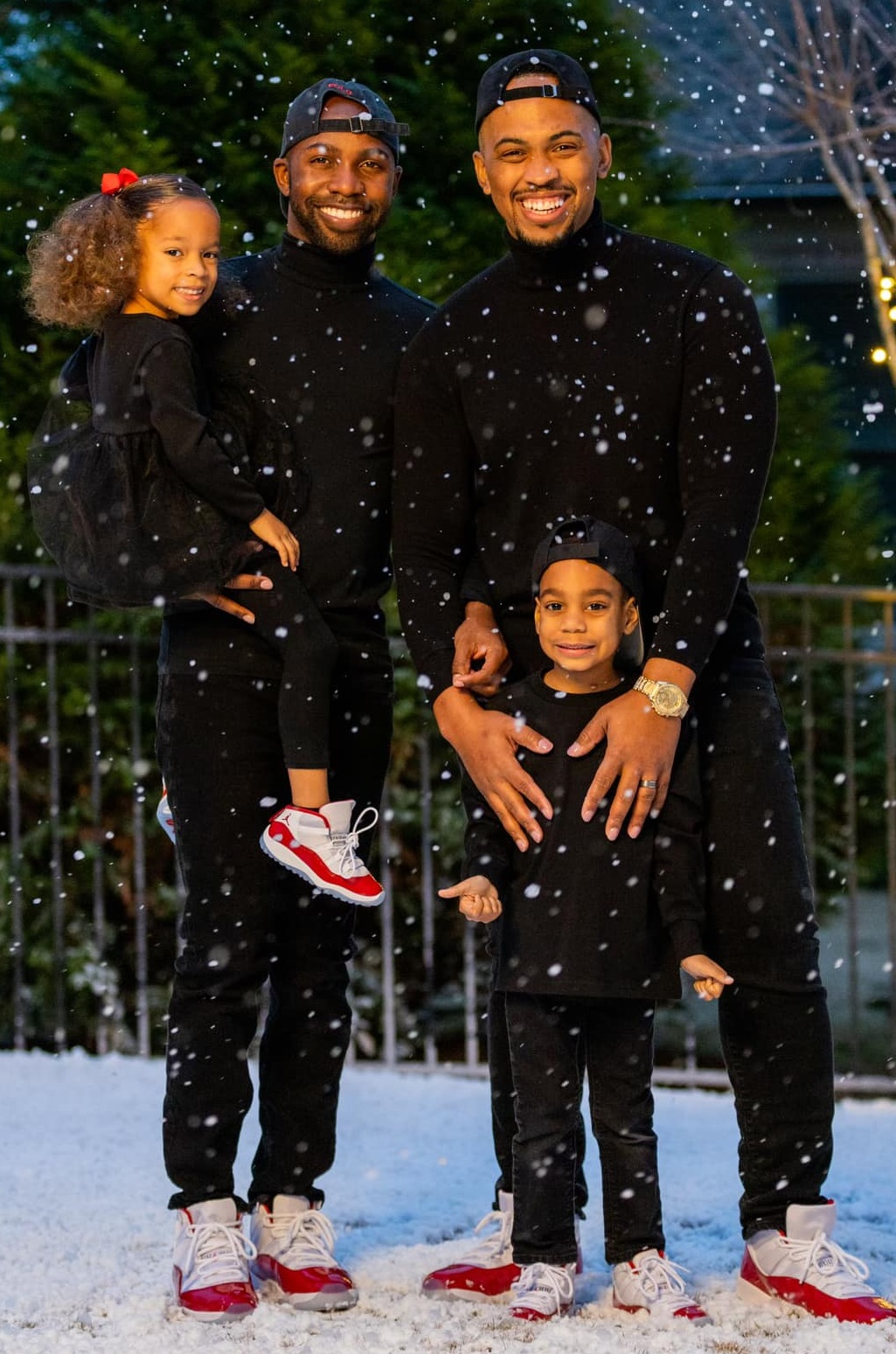
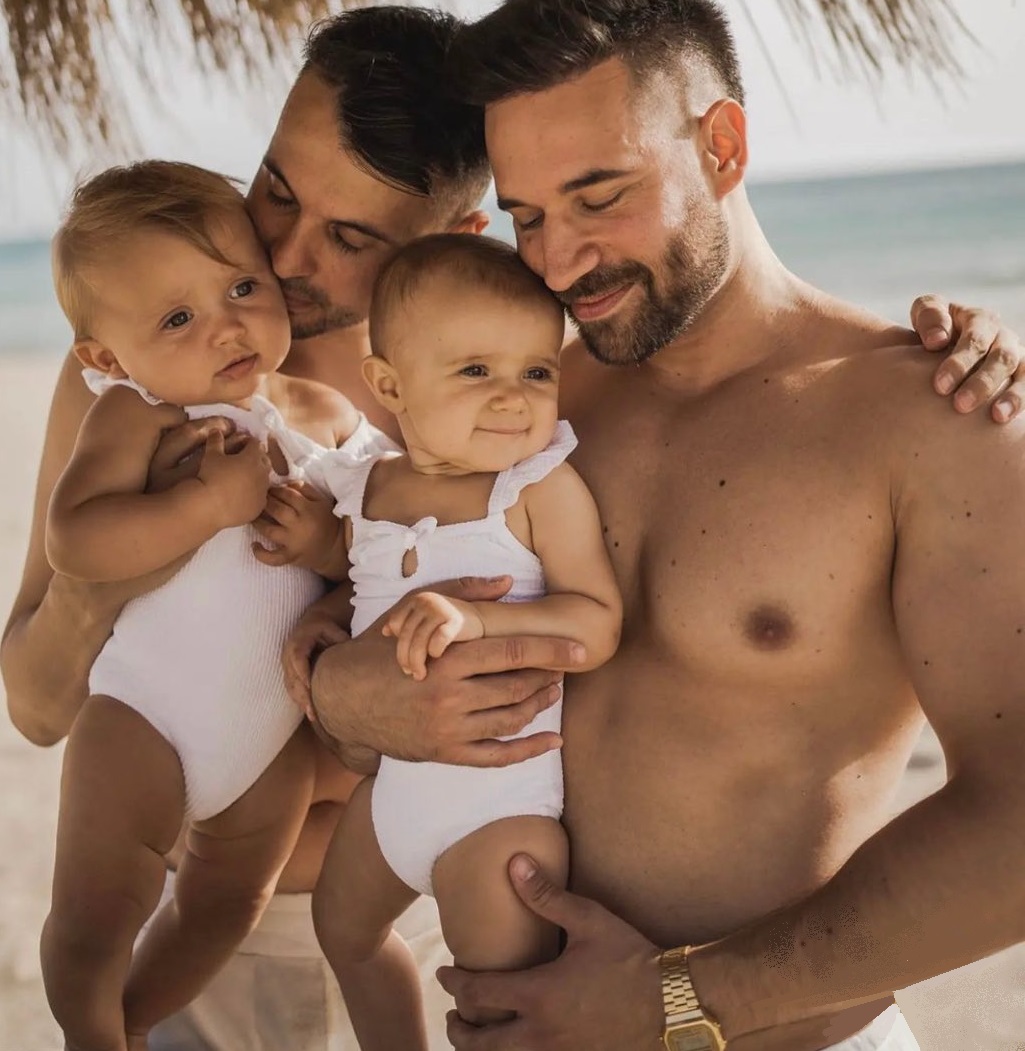
Creating a Family
My Gay Mums Are My Best Friends
List of LGBTQ Parent Adoption and Foster Care Resources
Advocate: What I've Learned From Being a Gay Dad
Video: Gay Dads Adopt 6 Siblings
Here's How Two Women Changed The Lives Of
LGBTQ Families In Alabama Forever
Dads Celebrate Daughter’s First Birthday After Difficult
Path To Parenthood
Gays With Kids: Gay Surrogacy
Retired Gay Couple Has Fostered 33 Kids
Denis
& Hugo Plus One Infant
Do you have the patience to wait for your child to
show you love?
Some children, especially those older than age 5 or so,
have a hard time bonding with, and trusting new adults.
Are you ready for your new older child to have a very
healthy dose of skepticism about you and your commitment
to them? Are you prepared to wait for them to return
your love?
Do you have the social and community resources around
you that will help you and them along the way?
Will your friends and family embrace the new family
unit? Does your community (LGBTQ resources, spiritual
center, schools) offer events and groups that could be
valuable to you and your child? Is there an active LGBTQ
parent support group in the area?
Are you patient enough to successfully complete pre-
and post-adoption placement counseling?
All agencies, public and private, will require you to
complete some counseling before and after you adopt. Do
you welcome that support or do you view it as intrusive
and unwelcome?
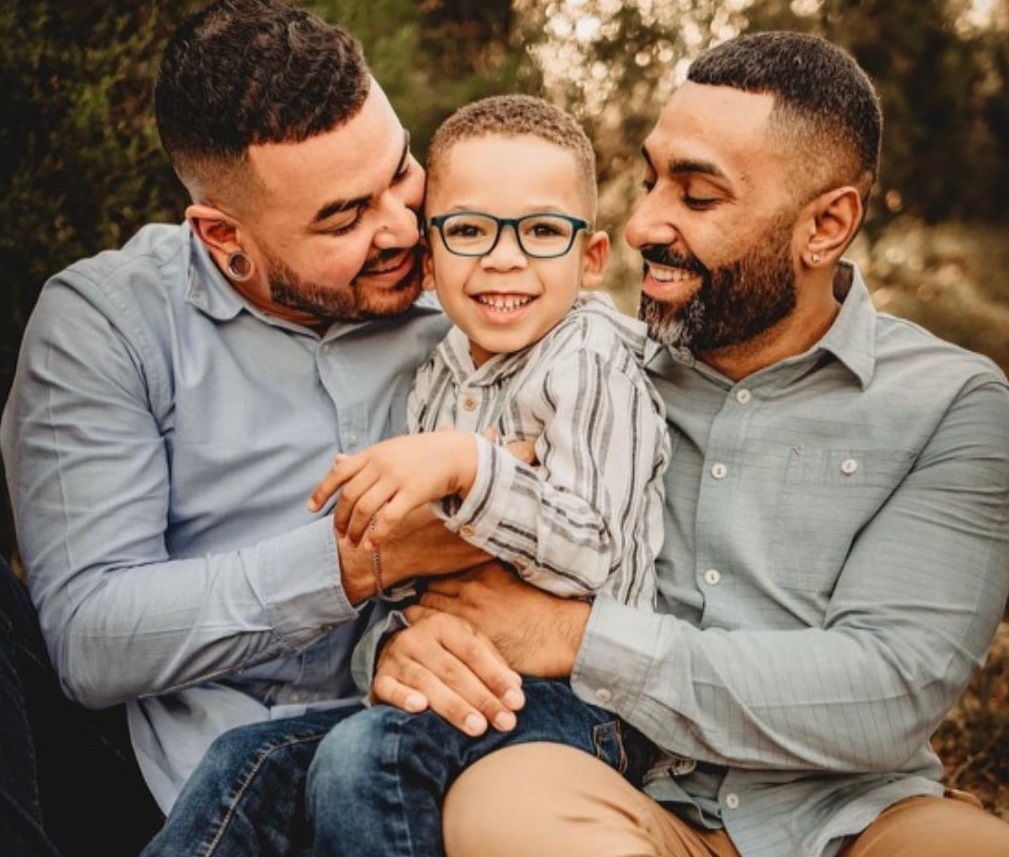
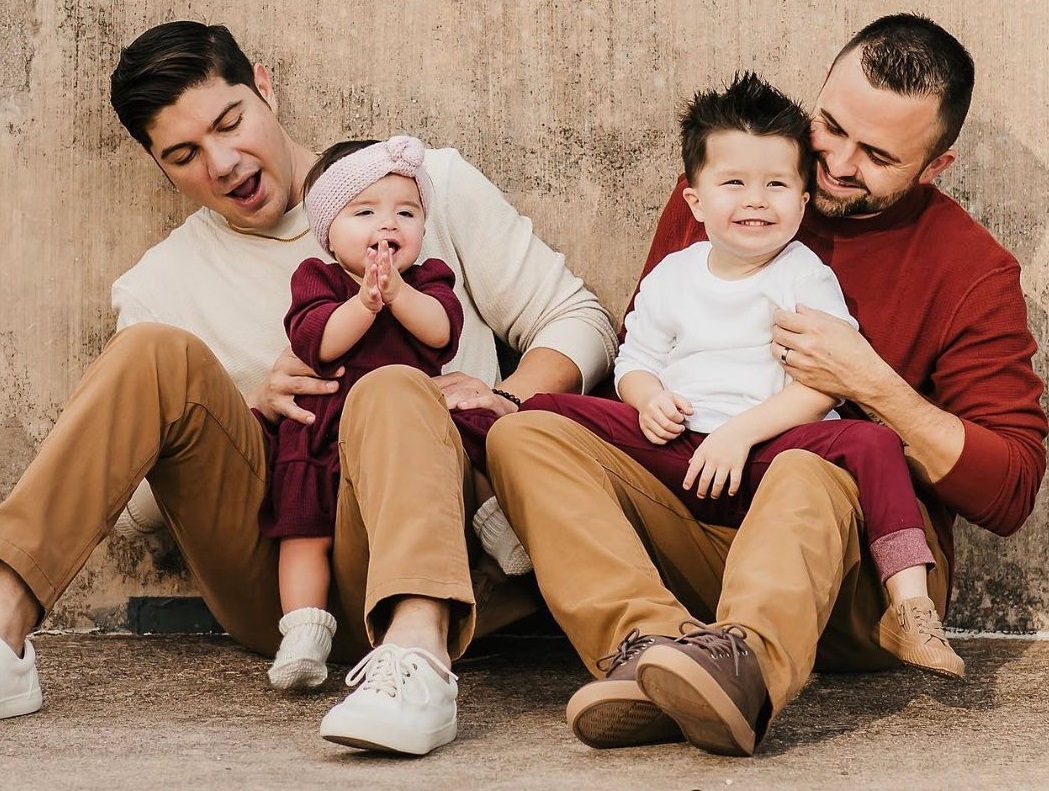

My Gay Mums Are My Best Friends
NOLO:
Gay and Lesbian Adoption and Parenting
Steve and Rob: Two Dads Adopt Six Siblings
LGBTQ
Adoption: Redefining Family
Lesbian Couple is Helping Their Son Build a Lifelong
Relationship with Their Sperm Donor
Same
Sex Couples Can Adopt Children in All 50 States
How Do Queer Couples Have Babies?
Info: Same Sex Marriage
ACLU:
Overview of LGBTQ Parenting, Adopting, and Foster Care
20 Families Rejected a Baby with Down
Syndrome Until a Single Gay Man Adopted Her
Are you ready to be 100% honest and transparent with
the agency worker?
The worker will evaluate you, your home, financial
records, employers, family, medical and psychiatric
history, criminal background and so forth to see if you
are likely to become a good parent. It’s important to
understand that the agency worker is not looking for
perfect parents. She or he is looking for your honesty
and a reasonably good match with a child in need of a
loving home.
Have you
had a major life event in the past 12 months?
For instance, have you separated from or lost a partner,
moved across the country, experienced the death of
someone close, lost your job, married your new love,
suffered a significant illness or accepted major new job
duties? If so please let your significant life events
settle in for a while, then re-evaluate whether or not
you still want to adopt. Avoid adopting as a remedy for
or as an add-on to another major life event. The
adoption process is a major life event in its own right.
It is unwise to couple it with another life event.
[Source: Human Rights Campaign]
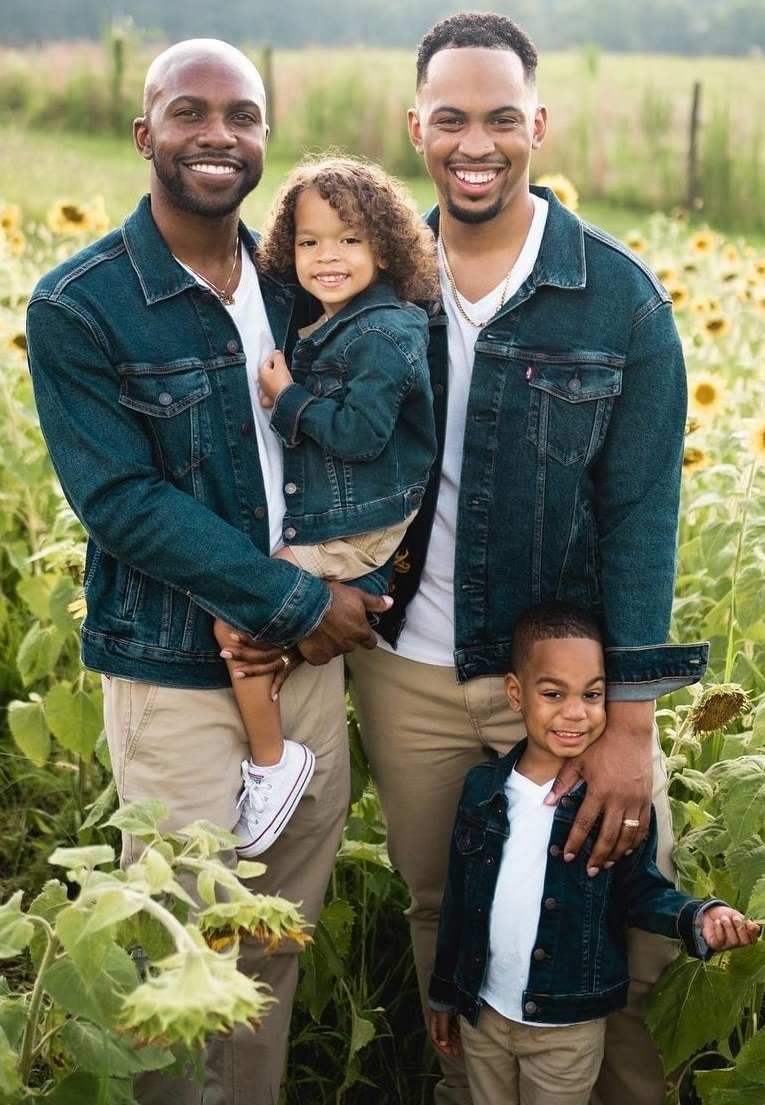
How to Make Adoption a Reality
Congressional Hearing: LGBTQ Couples Adopting Children
LGBTQ People Want to Foster or Adopt Kids, but Fear of
Discrimination Stops Them
Steve and Rob: Two Dads Adopt Six Siblings
Gay
Foster Parents
Lesbian Couple That Brought Down Alabama’s Gay Marriage
Ban Sues State Over Second-Parent Adoption
Stories of Gay Dads and
Their Foster Families
Dads Celebrate Daughter’s First Birthday After Difficult
Path To Parenthood
List of LGBTQ Parent Adoption and Foster Care Resources
Gays With Kids: Gay Surrogacy
Mignon
& Elaine Plus Two
Adoption and the LGBTQ
Community
Approximately 114,000
same-sex couples in the US are raising children. As many
as 21% of those couples are raising adopted children and
almost 3% of them are fostering a child. In 2016, an
estimated 705,000 United States households were headed
by a same-sex couple. Over 65,000 adopted children and
14,000 foster children live with LGBTQ parents. Check
out these additional overview stats:
--All 50 states have now moved to make adoption by LGBTQ
parents legal.
--Same-sex couples are
7-10 times more likely than heterosexual couples to be
raising an adopted or foster child.
--Sixty percent of LGBTQ adoptions are transracial.
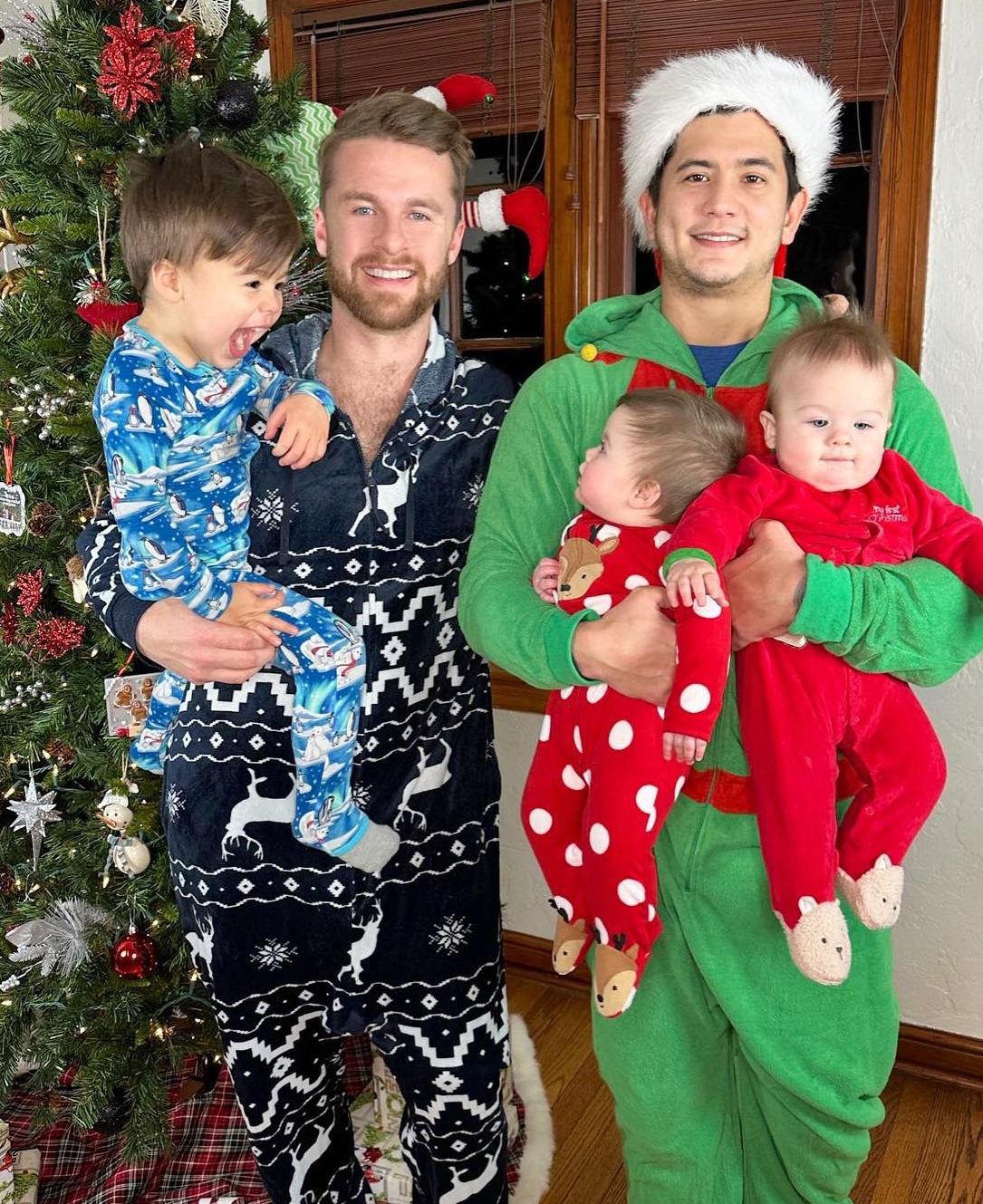

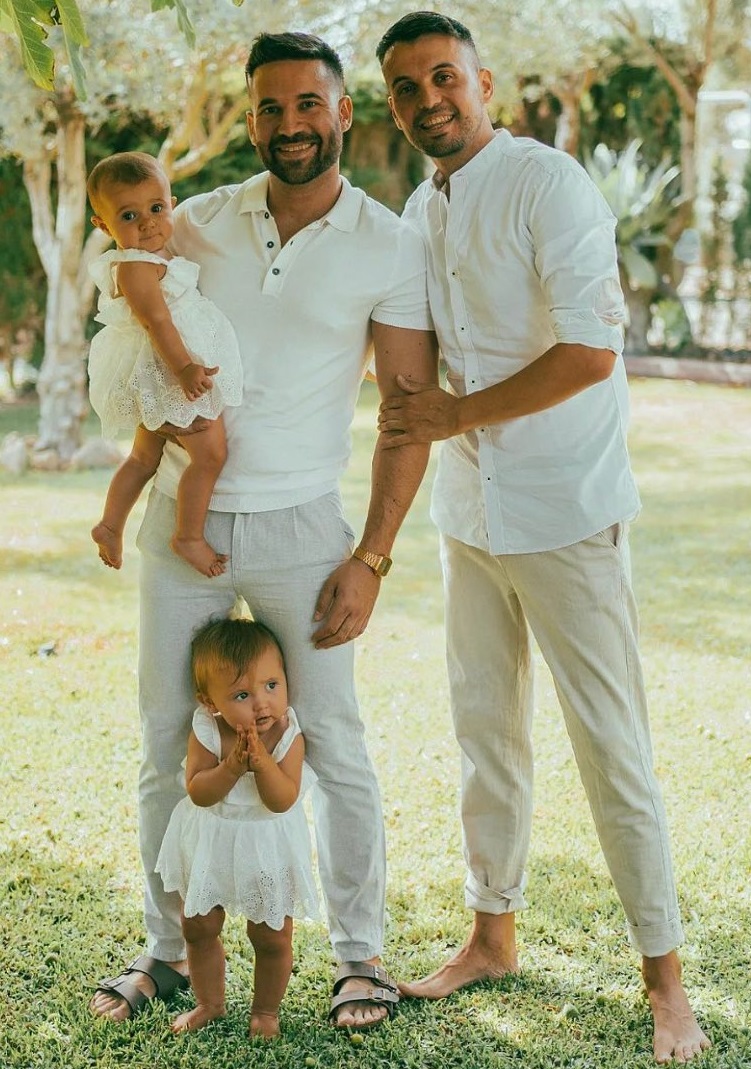
LGBTQ
Adoption: Redefining Family
Two Gay Dads Adopt Six Kids
List of LGBTQ Parent Adoption and Foster Care Resources
Rainbow Babies
Stories of Gay Dads and
Their Foster Families
How Do Queer Couples Have Babies?
Gay
Foster Parents
Adoption Story: Gay Dads Adopt 6 Siblings
How Gay Dads Respond to "The Mommy"
Question
Facts
on Gay Adoption
Keep in mind that much of
this data is compiled on gay and lesbian adoption since
little information is available on adoption by
bisexuals, transgender and those who identify as queer
or gender nonconforming.
While we have seen large shifts in acceptance of gay and
lesbian adoption in recent years, discrimination still
exists. Currently, only 21 states include sexual
orientation in their non-discrimination laws. 52% of the
LGBTQ population lives in one of the 29 states that do
not have inclusive sexual orientation non-discrimination
laws. In a 2011 national survey of 158 gay and lesbian
adoptive parents, nearly half reported experiencing bias
or discrimination from a child welfare worker or birth
family member during the adoption process. Also,
although gays and lesbians are facing less
discrimination, significantly more resistance exists to
adoptions by transgender and gender-nonconforming
people.
Acceptance of LGBTQ people adopting is increasing
rapidly, especially for gays and lesbians. In fact, many
gay dads tell us that they believe their sexual
orientation worked in their favor when adopting an
infant domestically because some birth moms wanted to
remain their child’s “only mother”.
[Source: Creating
a Family]
LGBTQ Nation: Foster Kid Dreams of Being Adopted by Two
Days
Retired Gay Couple Has Fostered 33 Kids
Germany Making it Easier for Lesbian Couples to
Co-Parent
Hero Dads Adopt Six Siblings
Adoption Finalized for Alabama Couple
How Gay Dads Respond to "The Mommy"
Question
Info: Home and Family
Stories of Gay Dads and
Their Foster Families
Lesbian Couple That Brought Down Alabama’s Gay Marriage
Ban Sues State Over Second-Parent Adoption
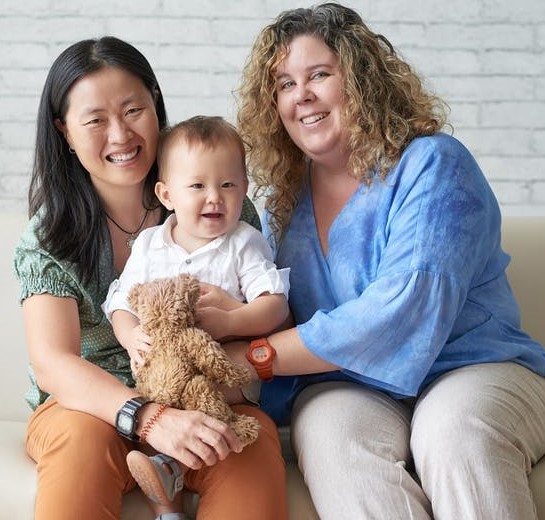
Victory for Indiana Lesbian Couples
Supreme Court hands
down victory for lesbian Moms.
Indiana
officials were seeking to undermine marriage equality,
but the justices refused to hear the case.
In December 2020, the Supreme Court has denied Indiana’s
petition to hear a case involving the rights for
same-sex spouses to appear on their children’s birth
certificates, leaving in place an appeals court decision
in favor of listing the wife of a woman who gives birth
on their child’s birth certificate.
A month earlier, Indiana Attorney General Curtis Hill
asked the Supreme Court to deny same-sex couples the
same right of presumed parenthood that opposite-sex
couples enjoy. When a child is born to a married,
opposite-sex couple, the mother’s husband is presumed to
be the father and is listed on the birth certificate,
even if there is no proof that he is the child’s
biological father, and even if the couple knows he is
not because they used a sperm donor.
In Box v. Henderson, the
US Court of Appeals for the Seventh Circuit sided with
eight married lesbian couples who had children with the
help of artificial insemination, saying that the wives
of the women who carried the children should be presumed
to be their children’s parents instead of forcing them
to adopt the children later.
This is because Obergefell v. Hodges, the 2015 Supreme
Court decision that legalized marriage equality in all
50 states, requires that same-sex marriages and
opposite-sex marriages be treated the same. And in its
2017 Pavan v. Smith decision, the Supreme Court ruled
that same-sex couples have the same right to be named on
their children’s birth certificates.
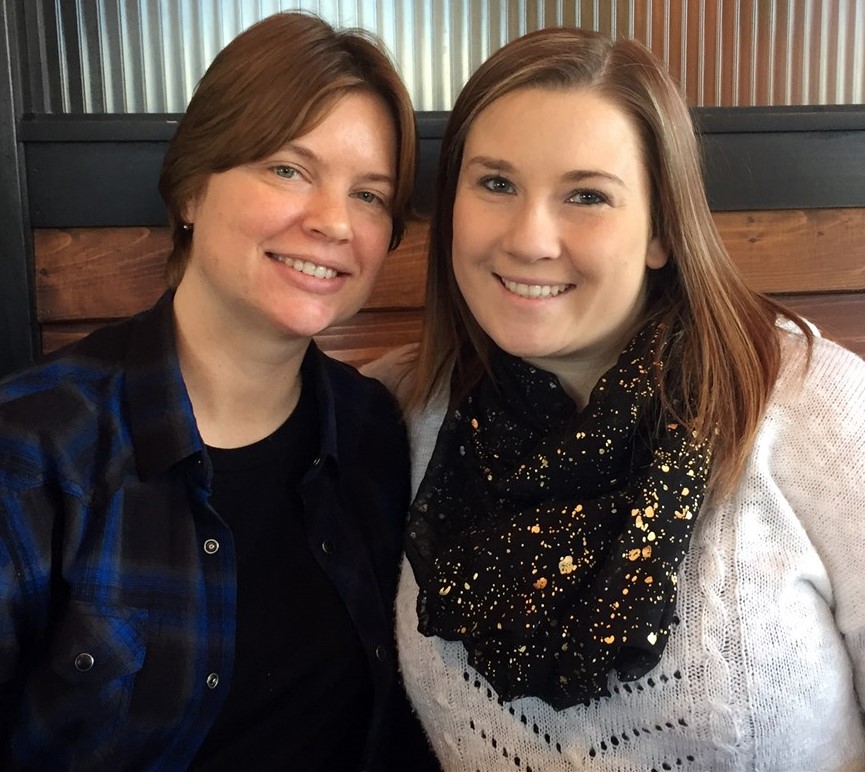
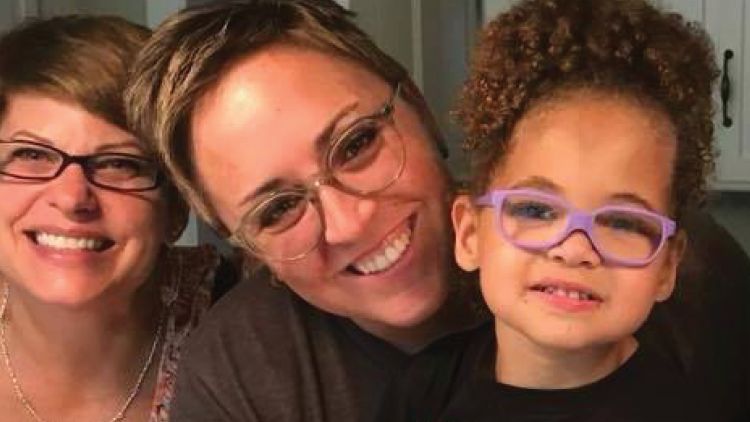
LGBTQ
Adoption: Redefining Family
List of LGBTQ Parent Adoption and Foster Care Resources
How Do Queer Couples Have Babies?
The
Berretts: Questions for an LGBTQ Family
Facts
on Gay Adoption
20 Families Rejected a Baby with Down
Syndrome Until a Single Gay Man Adopted Her
How Gay Dads Respond to "The Mommy"
Question
Video: Gay Dads Adopt 6 Siblings
Foster Care Adoption Story: Crystal and Kelly
But the case gave the Supreme Court the opportunity to
overturn Pavan and start chipping away at Obergefell‘s
right to marriage equality by denying certain rights
that opposite-sex couples enjoy. The state of Indiana
argued that states have the right to maintain the
“biological distinction between males and females” and
presume that a mother’s husband is her child’s father.
Since the Supreme Court has moved significantly to the
right since 2017, Indiana’s attorney general might have
thought that the high court would take him up on the
offer to overturn the previous LGBTQ victories. But it
did not. LGBTQ advocates like Shannon Minter of
the National Center for Lesbian Rights are relieved that
the Court did not take up Box v. Henderson.
Two Twitter
Messages:
BREAKING: US Supreme
Court declines to hear Indiana case on listing both
mothers on birth certificate in same-sex marriages.
Appeals Court ruling ordering both moms to be listed on
birth certificate remains in place.
SIGH OF RELIEF: SCOTUS just declined to hear Box v.
Henderson, a case in which the Indiana Attorney General
was trying to strip queer people of equal parenting
rights. The 7th Circuit's decision striking down an
Indiana law keeping same-sex parents off birth
certificates stands.
[Source: Alex Bollinger, LGBTQ Nation, December 2020]
Supreme Court Hands Down
Victory to Indiana Lesbian Couple
Conservative SCOTUS
Announces Another Pro-LGBTQ Decision
Supreme Court Declines to
Roll Back Marriage Equality
Birth Certificate Case:
Victory for Indiana LGBTQ Families
Indiana Tries to Deny Parental Rights to Same Sex Couple
Cari & Kim Plus Khaya
Cari Searcy and Kim McKeand legally
married in 2008. Cari Searcy's partner, Kim McKeand, had
given birth to a baby boy, Khaya Searcy, in December
2005, with the aid of a donor. Searcy then sought to
become the adoptive parent of the child, who bears her
last name. Adoption would give Searcy rights to make
medical decisions for the child as well as securing the
sense of family in their home.
In July 2015, Baldwin County (Alabama)
Circuit Court Judge James Reid granted the adoption for
Cari Searcy in Mobile County Probate Court. His approval
of the measure ended a winding and politically fraught
legal battle for Searcy and her wife Kim McKeand,
Khaya's biological mother.

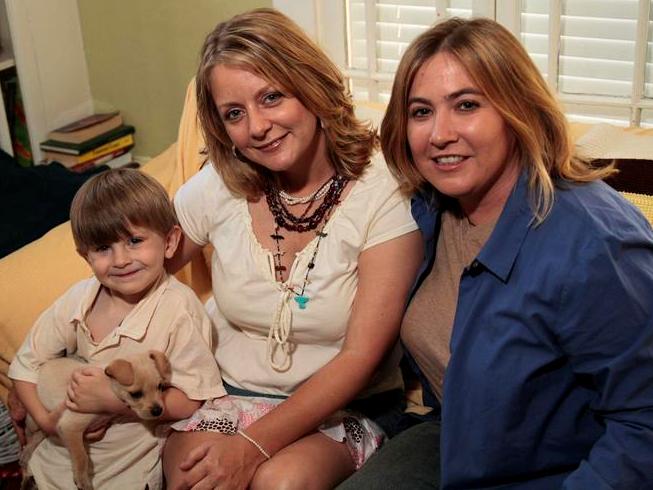
Their four-year-long quest to adopt the
child led to a federal judge overturning the state's
constitutional ban on same-sex marriage.
"It was such a surreal feeling to hear
the judge say that it is in the best interest of this
boy to have two legal parents," Searcy said. "For me,
that's when I broke down. It's very emotional and a day
we've been waiting for a long, long time."
Searcy first filed paperwork in Mobile
County Probate Court in 2011 to legally adopt the boy,
whom she has raised since birth. After a brief hearing,
Mobile County Probate Judge Don Davis rejected the
petition in April 2012, citing the state's ban on
same-sex marriage. The Alabama Court of Civil Appeals
later upheld that decision.
In February 2015, a federal judge ruled
that Searcy could not be denied her desire to adopt
Khaya, clearing the way for same-sex marriage in
Alabama.
LGBTQ
Adoption: Redefining Family
Two Gay Dads Adopt Six Kids
Rainbow Babies
20 Families Rejected a Baby with Down
Syndrome Until a Single Gay Man Adopted Her
Stories of Gay Dads and
Their Foster Families
How Do Queer Couples Have Babies?
Gay
Foster Parents
Adoption Story: Gay Dads Adopt 6 Siblings
How Gay Dads Respond to "The Mommy"
Question
Facts
on Gay Adoption
List of LGBTQ Parent Adoption and Foster Care Resources
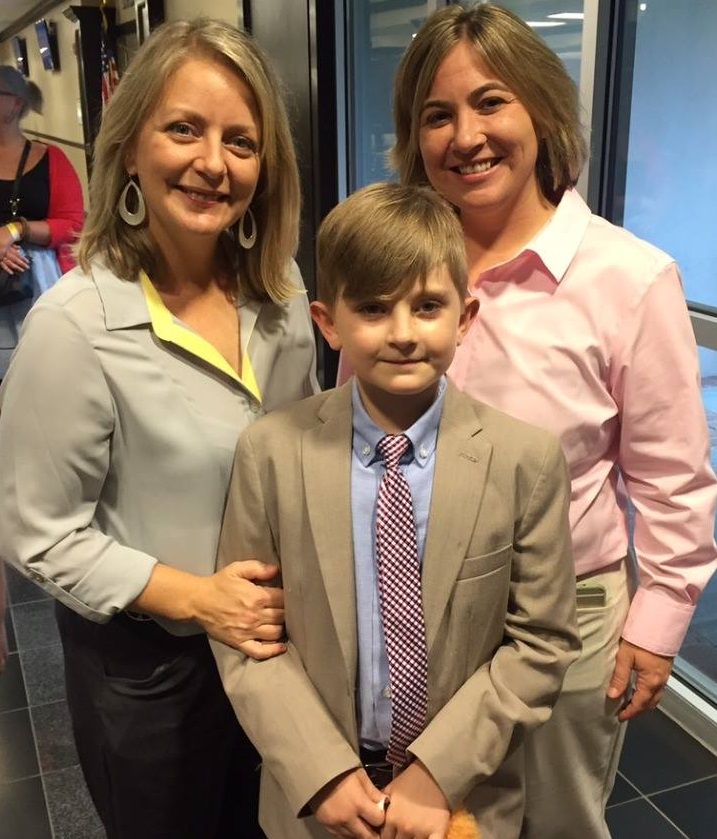
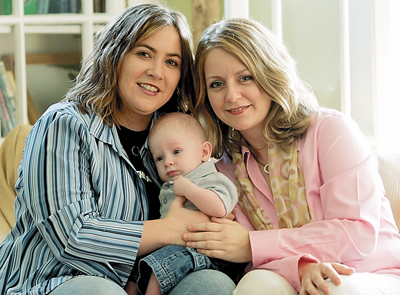
But hours before the law legalizing
same-sex marriage was to begin, Supreme Court Chief
Justice Roy Moore ordered the state's probate judges to
withhold same-sex marriage licenses pending the US
Supreme Court decision on the matter.
Searcy filed a second lawsuit after Davis
indicated he would not give final approval of the
adoption until after US Supreme Court case resolved the
same-sex marriage issue. The US Supreme Court legalized
same-sex marriage nationwide in June 2015, striking down
any remaining barriers to Searcy's adoption.
At the courthouse, Khaya, 9, was dressed
for the occasion, wearing a gray suitcoat, a blue button
up shirt, dress pants, and a plaid clip-on tie.
Clutching a brown teddy bear, he said, "It's good that I
finally have two legal parents."
[Source: Casey Toner, Alabama Media
Group, July 2015]
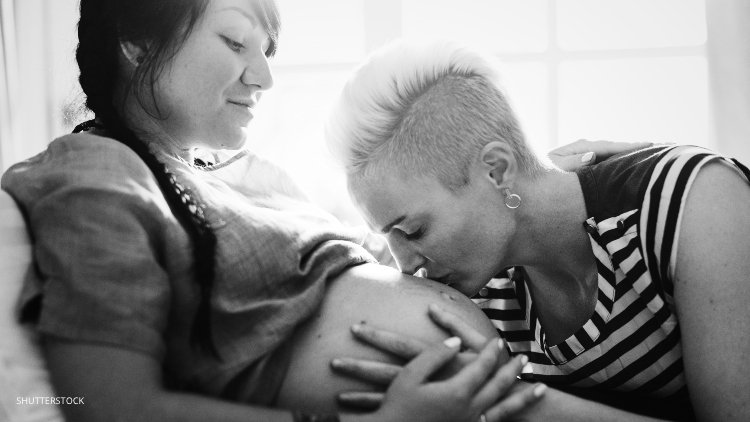
Same
Sex Couples Can Adopt Children in All 50 States
How Do Queer Couples Have Babies?
Info: Same Sex Marriage
ACLU:
Overview of LGBTQ Parenting, Adopting, and Foster Care
Michael and Tyrone: Foster Care Adoption Story
How to Make Adoption a Reality
What
They Aren't Telling You About Gay Adoption
Lifelong Adoptions: LGBTQ Adoptions
Greg and Paul: Two Dads Foster Adopt
Lesbian Moms: How We Met
Info: LGBTQ Parents
of Straight Children
Find
Law: Legal Issues for Gay and Lesbian Adoption
Ron and Greg: Story of Two Gay Dads
Tess and Nikina: Story of Two Lesbian Moms
HOME
QUEER CAFE
│ LGBTQ Information Network │ Established 2017
|